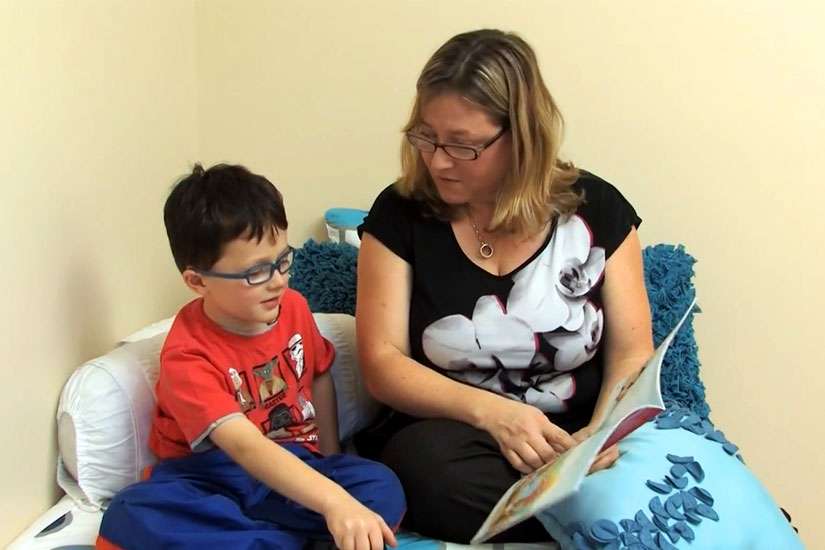This month, the Toronto Catholic District School Board’s Speech and Language Department held part one of its Interactive Parent Fair, a two-part information session focusing on improving early childhood communication development.
Attending parents heard a lecture covering typical development milestones, warning signs of a struggling communicator and evidence supporting the use of early intervention. The second component will involve interactive and video demonstrations of strategies to support communication development allowing parents to not only practise integrating these techniques but also practise their own communication skills with other parents.
“What we are going to be talking about is communication strategies and using opportunities to engage kids,” said Andrea Coke, the board’s chief language pathologist.
Rather than drastically change the home dynamic, the workshops are intended to seamlessly fit into the routines parents and children typically do, like watching TV.
“It isn’t that you need to turn off the TV,” she said. “We are going to show how you can have discussion about what you are watching and how you can introduce new vocabulary.”
Coke suggests talking to a child about the moral of the story after watching a movie rather than asking if they liked the film. This engages the child in communication and also teaches them how to expand conversation beyond basic description into abstract concepts requiring a greater degree of critical thinking and broader vocabulary.
Other typical routines where additional communication development could easily be intertwined are meal time, bed time, shopping and playtime with peers.
“The strategies that we are going to show are already embedded in the routines that you do at home,” she said.
A major hurdle for parents when attempting to do this however, occurs when attempting to engage children in meaningful conversation, said Coke.
“One of the reasons we wanted to do this workshop was that parents weren’t feeling engaged” with their children, she said. “You often hear parents say you ask your child what they did at school today and they say nothing. That is the response that they tend to get so we want to show ways that they can get something more.”
The trick is learning to ask specific yet open-ended questions. Coke suggested rather than asking a broad question about the entire school day parents should focus on a specific subject or even better an individual assignment.
And it isn’t just for parents of children that will struggle to communicate as they age, said Coke.
“It is for parents whether the children have difficulties or they are typically developing,” she said. “It is not coming from a deficit side to say that there are these great communication difficulties with all children and therefore we need to address this. For some it is going to be enrichment and for others it is going to be more of a remedial type of support.”
Parents were sent home with resource packages and access to the video series that depicts the strategies. Those videos are to be available online for both parents and staff.
“With the videos we are hoping to have, even on a smaller scale, (future) sessions ... (because) the research shows that the parents play a big role in terms of developing their child’s communication skills,” she said.
The two-part workshop is being held in the west at St. Jane Frances Catholic School on Jan. 20 and Feb. 24 for two hours each night. Parents in the east end were to be accommodated at St. Maria Goretti Catholic School on Jan. 22 and Feb. 26. Each workshop welcomed 150 parents.


